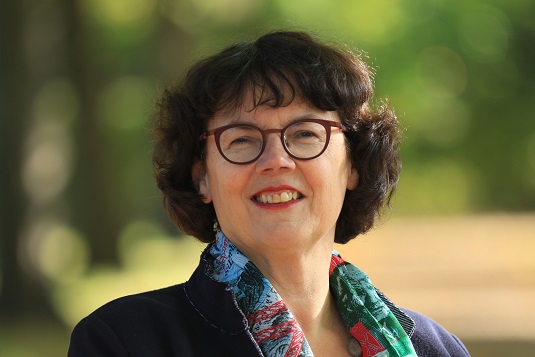Margit van der Steen resigns as manager director of the OPG

Dr. Margit van der Steen has stepped down as managing director of the Research School Political History (OPG), where she had been working since its founding in 2011. She will remain affiliated with the Huygens Institute as a guest researcher.
Margit van der Steen is currently conducting research at the Huygens Institute into the first 250 women in Dutch politics (1917-1927). From 1917 onwards, women were able to stand for election in Dutch politics, and from 1919 onwards, women were also able to vote. Margit van der Steen has received two grants for this project. Her book will be published in early 2026, around the time of new municipal elections in The Netherlands.
Research into political pioneers
The research bears the unique signature of the Huygens Institute: a combination of digital source research and historical literature research with surprising discoveries. Thanks to the digitization of historical newspapers, Margit was able to use Delpher to browse specifically for municipal election results. Based on the election results of the 1,000 municipalities that existed in the Netherlands at that time, it was then possible to determine how many women had been elected to the councils. She explains: ‘After that, it was a matter of manually counting and searching for individuals, which was an enormous task, but thanks to the new search options, I was able to identify 250 pioneering female politicians. I was surprised to discover that feminist figureheads were not necessarily the first women to be elected to political office.’
Network for early-career researchers in political history
As managing director of the Research School Political History (OPG), Margit van der Steen had played an important role in building a strong international network and a platform for PhD students and research masters in political history. An important function of the school is to provide high-quality education. Highlights of her involvement included the establishment of The Association for Political History and two international multi-day State of the Art conferences with more than 100 participants. Next year, there will be another international conference, this time in the German city of Münster. ‘Incredibly valuable for researchers at the beginning of a professional career in political history.’
Looking back in her own words
Margit van der Steen wrote a beautiful retrospective about her years at the OPG and its development. Read it here. She was closely involved with the OPG from its founding in 2011 and handed over her duties to her successor, Lotte van Hasselt, in May 2025.
Changing penmanship
Margit van der Steen: ‘The OPG owes a great deal to the Huygens Institute, which has housed us all this time and acted as our penholder. Although penmanship must rotate every five years among various universities, the OPG has been granted dispensation twice so that the school could remain at the Huygens Institute. But this is not possible a third time, so the OPG will be moving to another accommodation. That is fair enough, because the OPG is a unique network community, viewed with admiration and sometimes even a little envy from international colleagues. Soon, another penholder will be able to shine with the OPG.’
Gender in the Spinhuis
Margit van der Steen was appointed Knight in the Order of Oranje-Nassau for her commitment to science and society, in particular for her work as a historian and her contribution to the struggle for equality, diversity, and emancipation. Within the Huygens Institute, she is developing, together with Geertje Mak and other colleagues, the initiative Gender in the Spinhuis — a loose network of people with a special interest in gender. ‘We want to organize meetings a few times a year, such as lunch lectures.’



